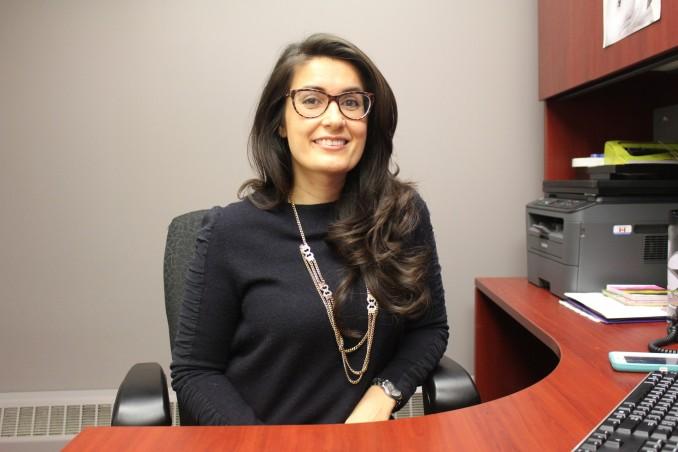By Alanna Rizza
Ryerson has its first coordinator for the Office of Sexual Violence Support and Education.
Farrah Khan took the position at the beginning of November and has a lot of experience to bring to the new office, which was established in the summer of 2015 after a review done by vice provost students, Heather Lane Vetere.
Khan has worked with sexual violence survivors since she was 16 years old. Having been exposed to sexual violence herself, Khan began organizing rock shows to raise money for shelters.
“[It] was something that happened to me and from that I felt like it was important for me to do this work and I was really interested in it. Then I made the decision that that was the kind of work that I wanted to do,” she said.
Khan completed her master’s degree in social work from U of T and worked as a counsellor for seven years at the Barbara Schlifer Clinic.
Khan then started the program OUTBURST! Young Muslim Women’s Project and began discussing laws and policies with the federal and provincial government regarding sexual assault.
Khan also created a guide for the media on reporting on sexual violence. She also worked with survivors to create a comic book about family violence in south Asian communities.
“I think that’s what [is] sometimes so challenging about sexual violence, that it’s done often times in intimate relationships [and] people in our communities,” Khan said.
In March, Khan was offered the position of co-chair of the provincial roundtable on Violence Against Women. Not long after she was approached by Ryerson to be the coordinator of the Office of Sexual Violence Support and Education.
“When this job opportunity came up it was really exciting for me because I had the opportunity to both look at policy but do on the ground front line work with survivors and actually accompany them to support them as they were accessing services or working out accommodations,” Khan said.
Her role as the coordinator is to organize educational workshops, programs, training for security and create podcasts and videos for the Ryerson community. Khan works closely with faculty, staff and students to “create a campus where consent comes first.”
There are three advisory committees that meet with Farrah to give her feedback on what is going well and what needs to be improved. The committees are made up of Ryerson student groups, faculty and staff, community agencies around Toronto as well as students who self-identify as survivors.
Khan stressed the importance of having just a “survivor-centred” committee.
“I think community activism can be a form of healing. And I think for many people they say, ‘I couldn’t shift want happened to me but I challenge what happens to others,” Khan said.
Ryerson students can join the advisory committee through an application process. They don’t need to give details about their exposure to sexual violence, but they must self-identify as a survivor and all genders are accepted.
“It’s important that with any policy or [with] anything that we do, that the people most affected and most impacted are the ones that get to be heard, but also get to shape what that policy looks like.”
Ryerson’s policy on sexual violence is going to be reviewed this September and there will be a safety audit of the campus. Khan’s next campaign will be launched in March.
“[The campaign] is really going to focus, in the next couple months, on education within the university, with our community be it online through video, through podcast, through art projects, to really look at how we can support each other when sexual violence happens,” said Khan.
The campaign will also focus on what bystanders should do when involved in incidents of sexual violence, how to avoid victim blaming statements and understanding the spectrum of how a survivor can react to their exposure of sexual violence.
“When someone discloses or when an act is happening, [it is important] that we have a consistent language that we are using. We are using a survivor centred language, language that affirms people’s right to be safe and affirms people’s right to make decisions that work best for them,” she said.
Khan thinks language is something that the Ryerson community has to work on, but she is very happy with the various community initiatives to make campus safer.
“There’s so much commitment from administration [and] there’s so much commitment from student leadership.”
“It’s everyone’s issue to make the campus safe,” she said.
For now Khan’s focus is giving power and control back to survivors.
“I really do believe that we can have a different world, I do believe that people have the right to be safe, I do believe that students, faculty and staff have a right to learn, to work and to be in an environment where they do not have to deal with sexual violence.”












Leave a Reply